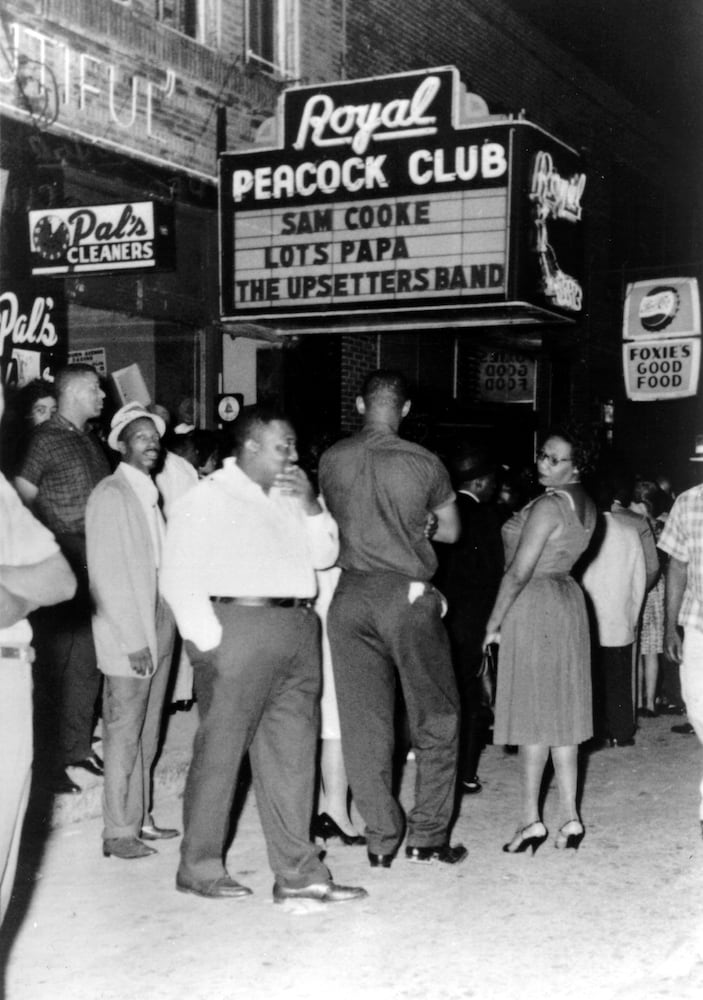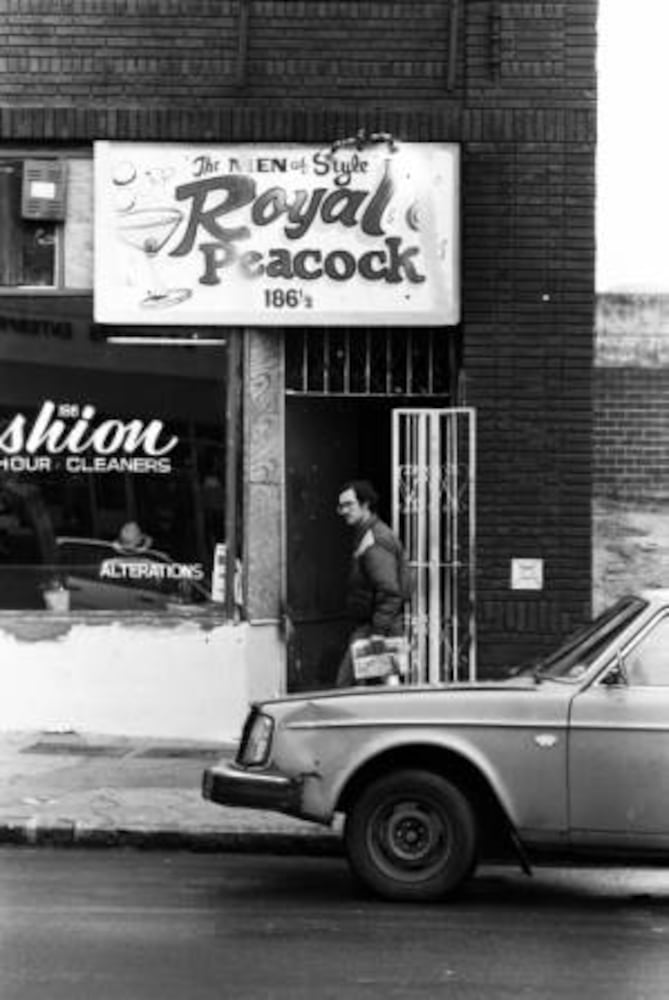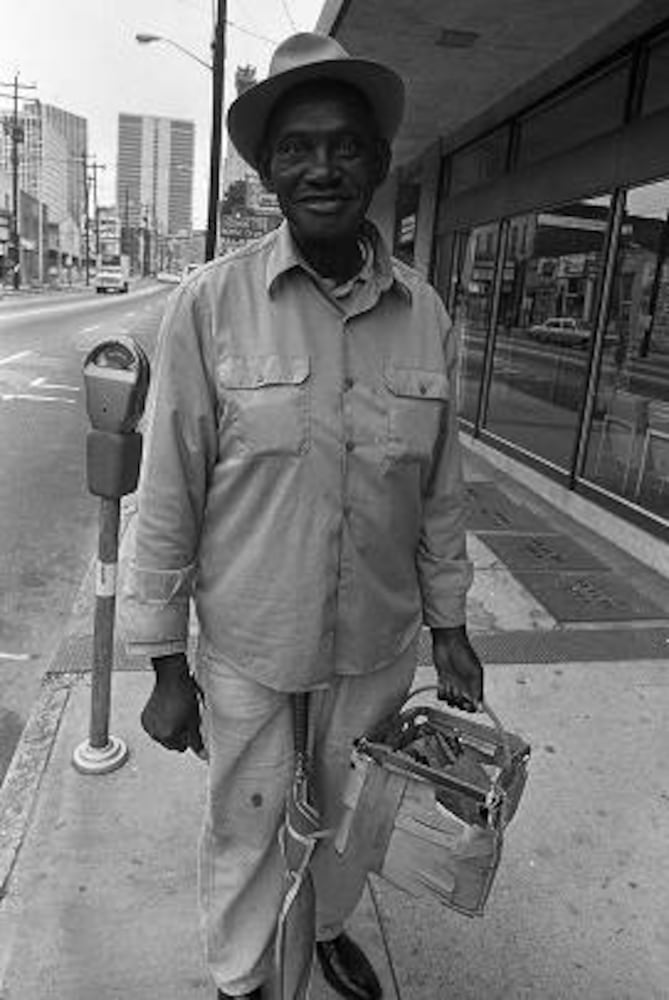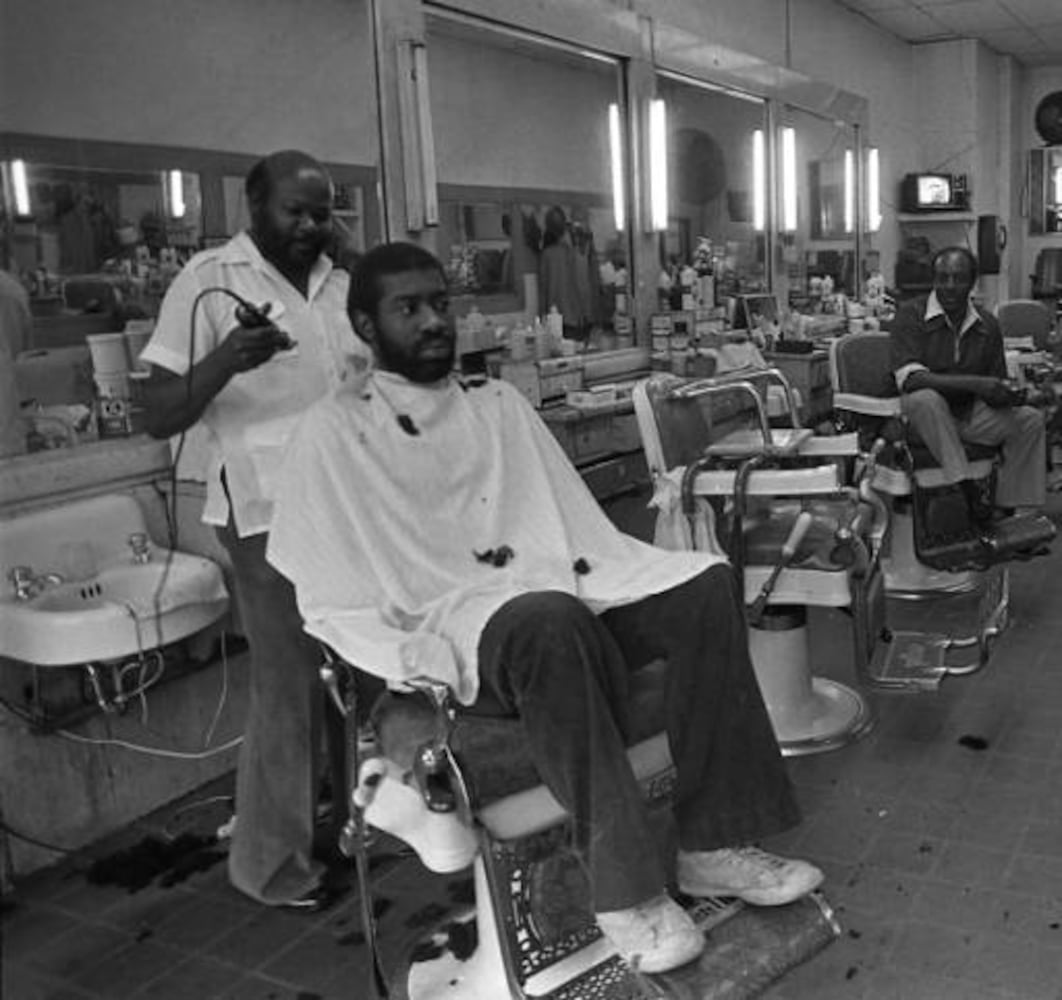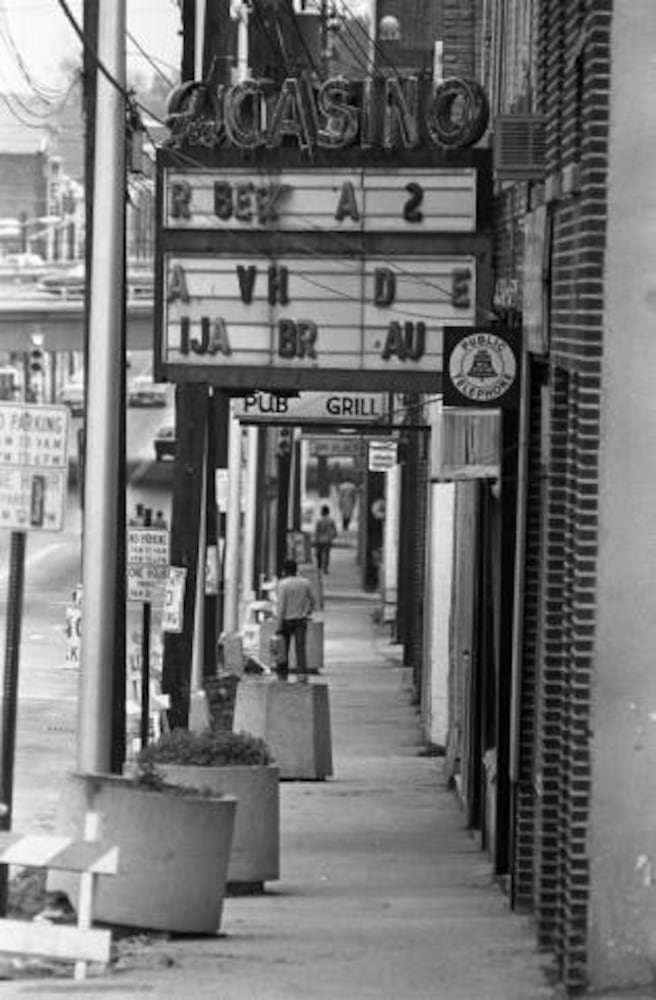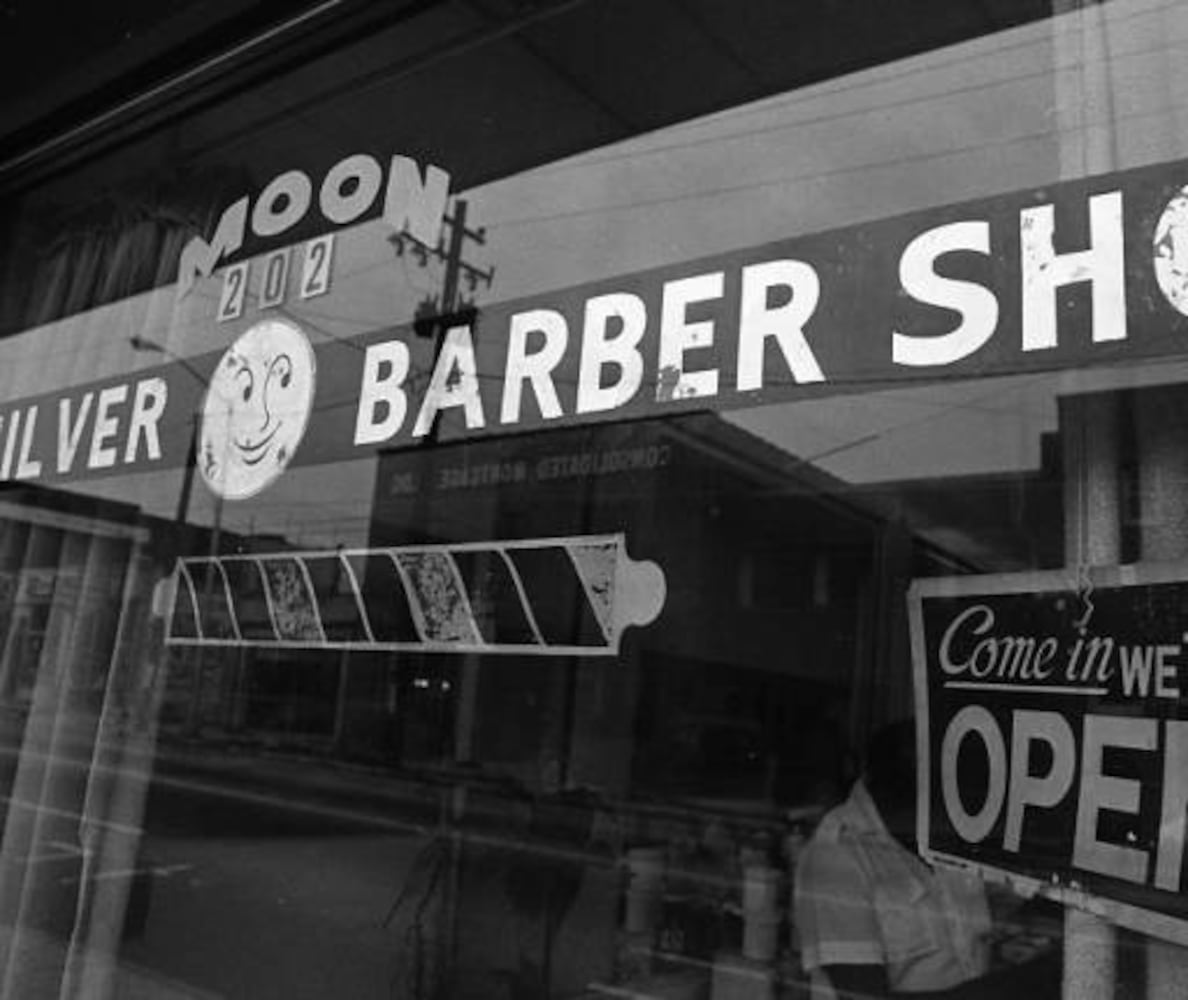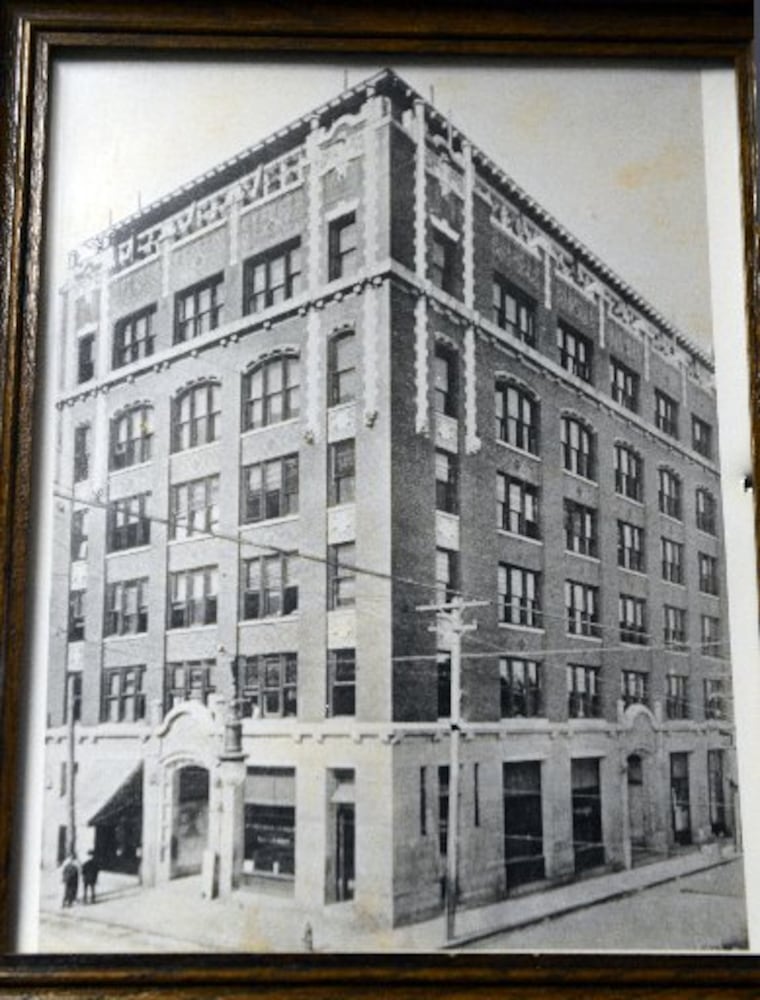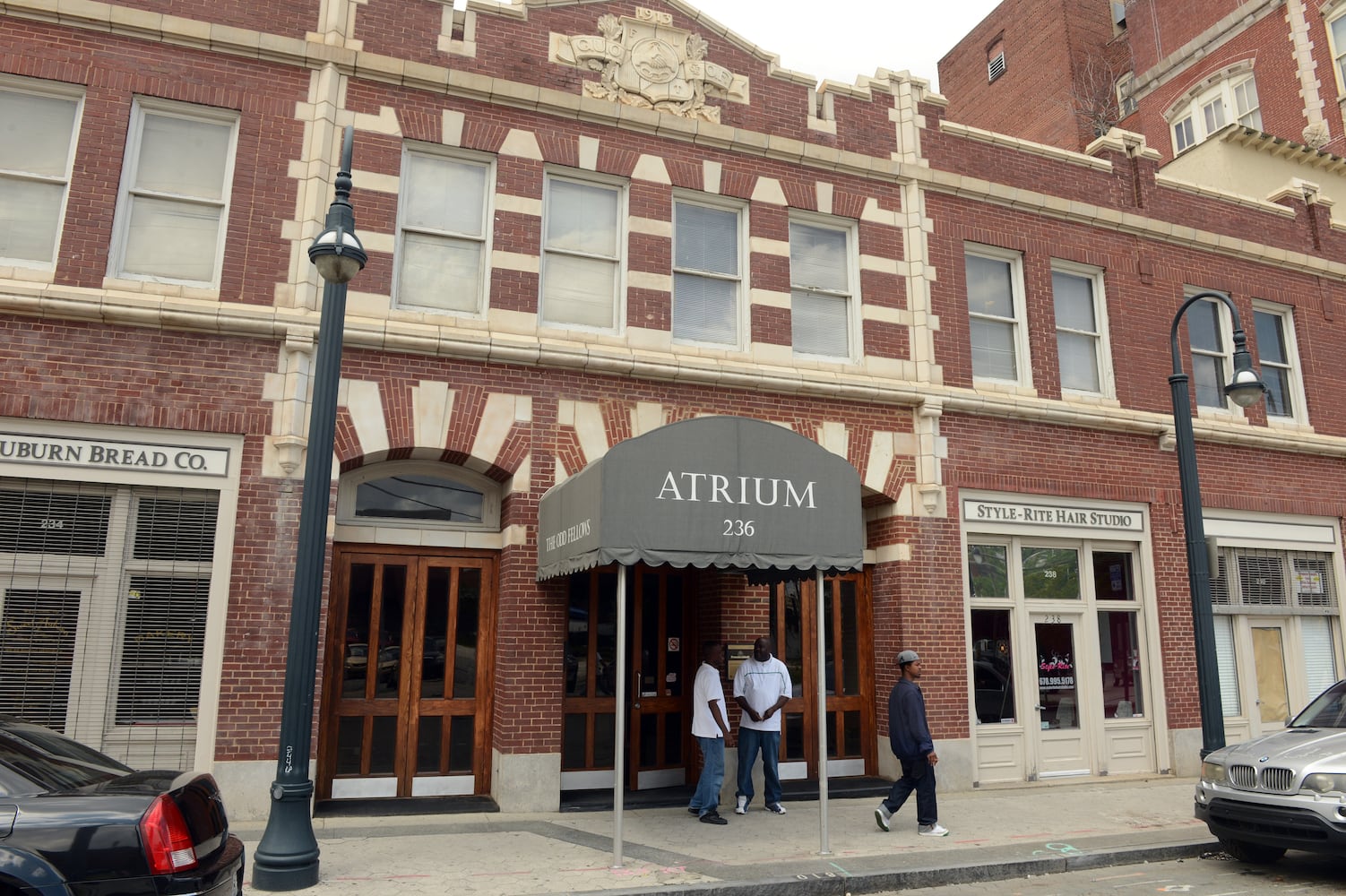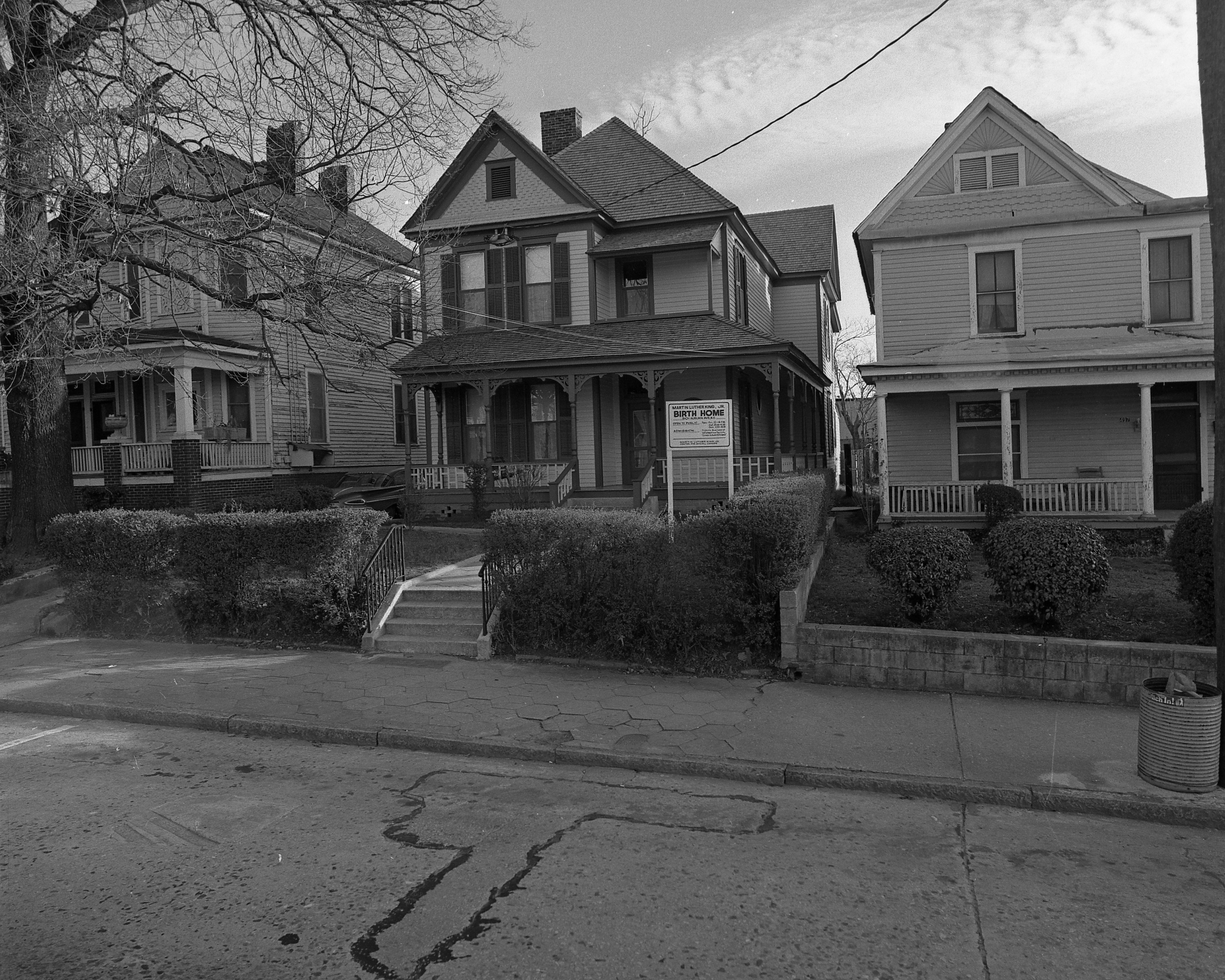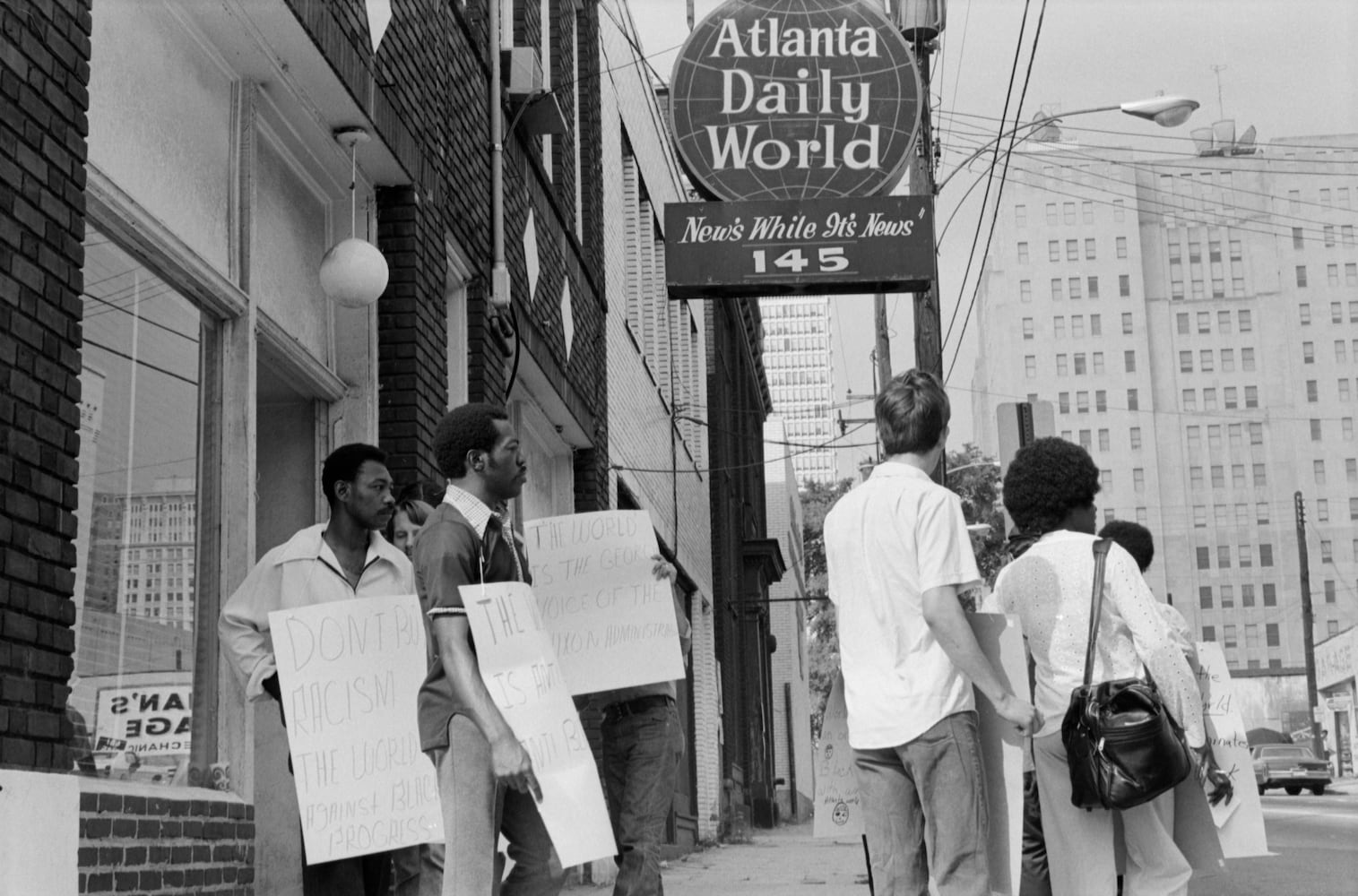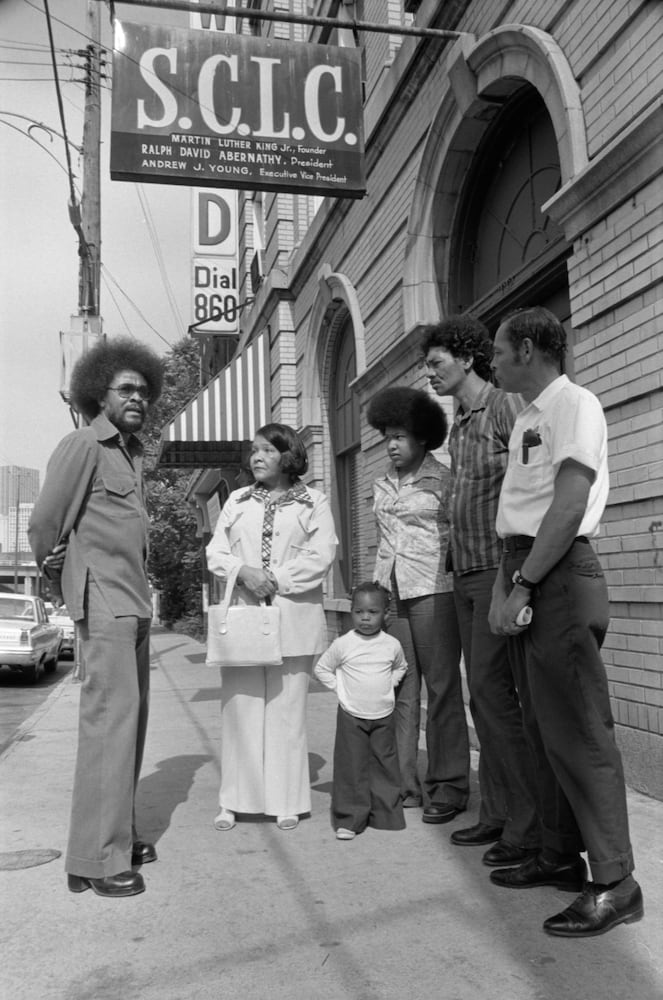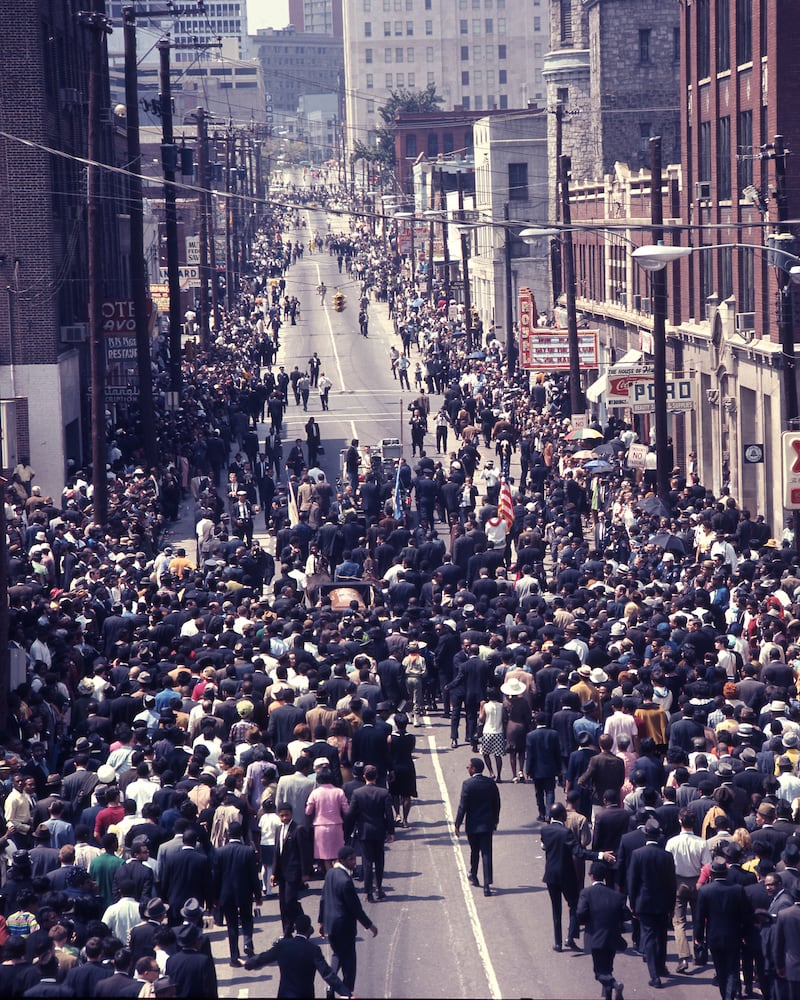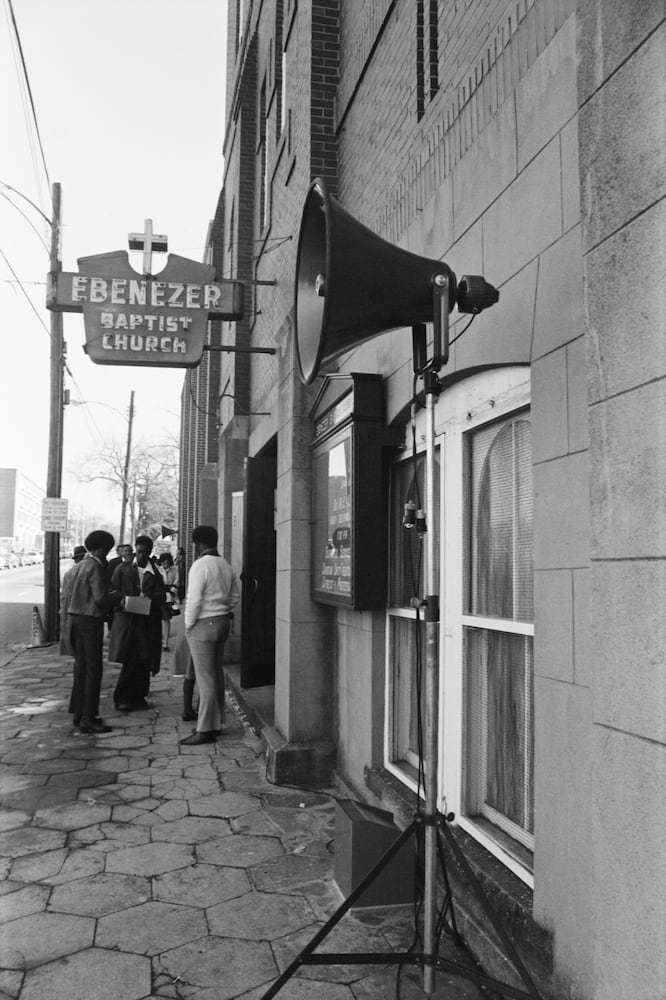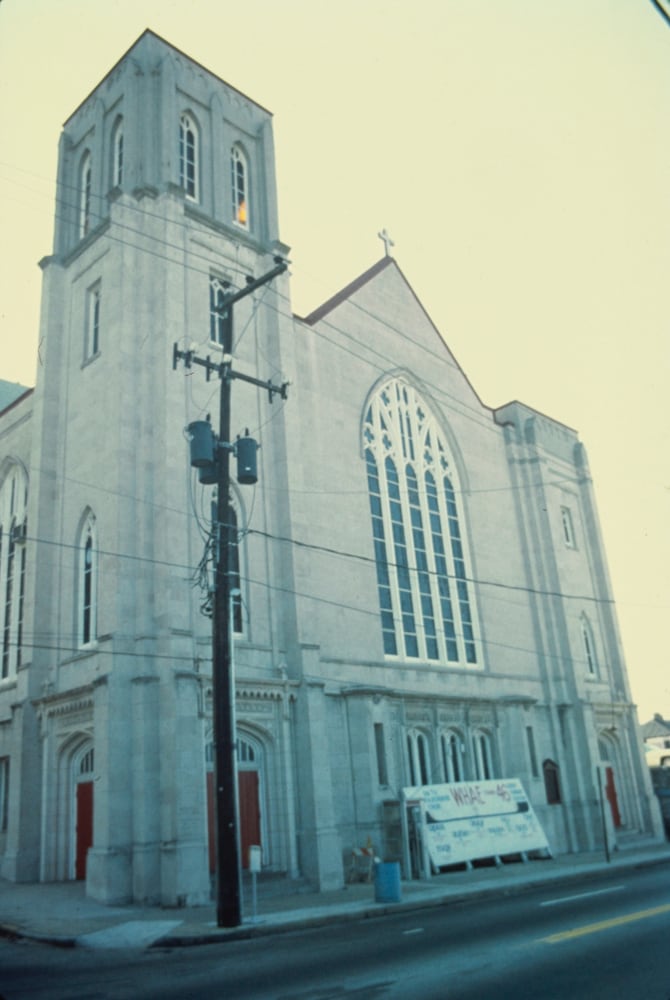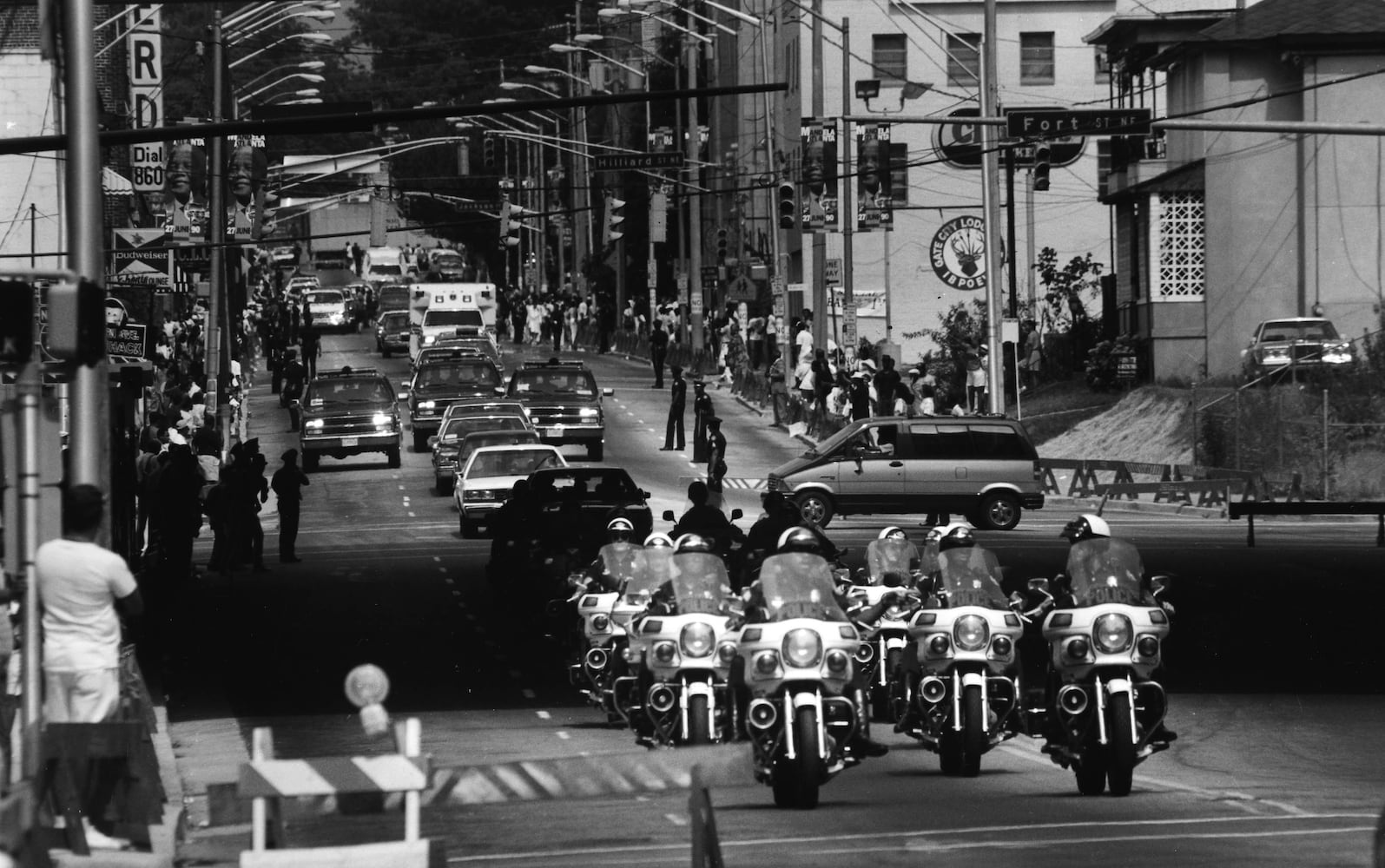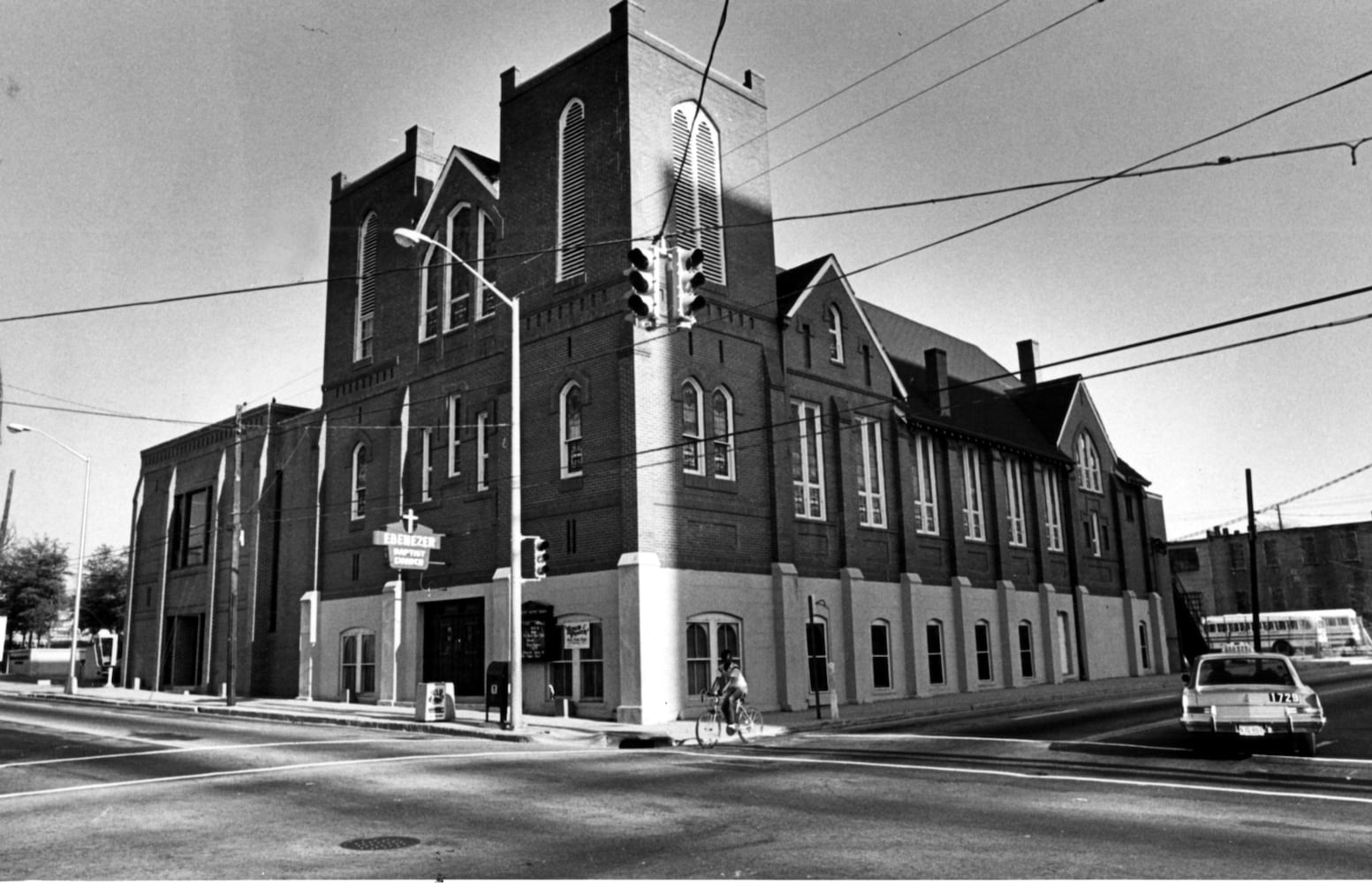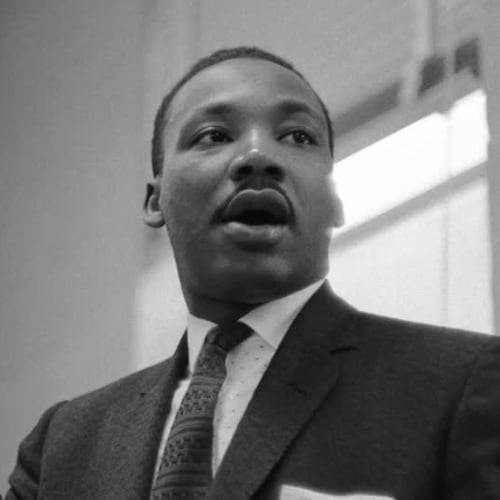When a tornado tore through Atlanta’s historic Auburn Avenue in 2008, it knocked down buildings and caused millions of dollars in damages.
It also helped destroy parts of a legacy that was already weathered.
On the thoroughfare that was described in a 1956 magazine article as “the richest Negro street in the world,” there are now dozens of buildings that are vacant, boarded up or unusable. It’s a far cry from the days when the corridor nurtured a rising Black middle class, including the family of civil rights leader the Rev. Martin Luther King Jr., as well as a concentration of Black-owned businesses, a Black-run daily newspaper and branches of several major social justice organizations.
Credit: Daniel Varnado
Credit: Daniel Varnado
Nearly half of the buildings that were there 45 years ago — when the secretary of the interior designated the street and some of its surroundings as the Sweet Auburn National Historic Landmark District — are gone, a study commissioned by the National Park Service shows. That’s due to tornado damage, new construction and neglect, according to the Park Service, which oversees the Martin Luther King Jr. Historical District.
But it’s not too late to reverse the district’s fortunes, said Cynthia Walton, the regional manager for the Park Service’s archeological and historic preservation partnerships. Several individuals and groups, from nonprofits to Georgia State University, are crafting plans on how to revitalize the area. The study prepared by New South Associates recommends updating the 1976 historic landmark nomination to expand the district.
“Some might consider these small commercial buildings that are not important,” said Walton. “But this study shows that it adds up. It is disheartening that 47% of the buildings have been lost.”
Credit: Daniel Varnado
Credit: Daniel Varnado
Many of the buildings were constructed between the end of the Civil War through the mid-1930s. “I see a lot of positives and a lot of opportunities for the district,” Walton said. “There are prominent buildings here poised for redevelopment.”
Some of the work has already begun.
The Odd Fellows Building and Auditorium, built in 1912, has been redeveloped as office space and shops. The Municipal Market, which opened in 1924 and is now known as the Sweet Auburn Curb Market, is thriving. On the first floor of the old Atlanta Daily World building, Georgia State University students sip coffee and tea. Two apartments occupy the second floor.
Credit: Daniel Varnado
Credit: Daniel Varnado
But there’s still much to do. The old Atlanta Life Insurance Company building, which was constructed prior to 1892 and had an annex added in 1936, has been boarded up since 1980. Cheneé Joseph, who runs the Historic District Development Corporation, which owns the building, said she is planning a 2022 capital campaign to raise money to renovate the structure and to create an interactive museum.
“But we want it to be 100% philanthropic,” said Joseph, the president of HDDC, a community organization that has won widespread praise for its efforts to revitalize the area. “So it will be a heavy lift.”
Credit: Daniel Varnado
Credit: Daniel Varnado
While she waits to start work on the Atlanta Life Insurance Company building, Joseph’s $32 million Front Porch Project is set to break ground on Auburn Avenue, between Jackson and Hilliard streets, in January.
The 100,000-square-feet mixed-use development will bring what Joseph calls “equitable development” to the area and include 35,000 square feet of commercial retail, apartments, condos and a community garden.
The area could benefit from programs like the Eastside Tax Allocation District, which has poured millions of dollars into the area that stretches from North Avenue south to Memorial Drive, from the Beltline’s eastern loop to Underground Atlanta on the west. But, according to the New South Associates study, very little of that money has come to the Sweet Auburn district.
Walton said she is hoping that the study, which details how much of Sweet Auburn is disappearing, will “help get the word out and this can spur a conversation and get some momentum going.”
Credit: Daniel Varnado
Credit: Daniel Varnado
LeJuano Varnell, the executive director of the nonprofit Sweet Auburn Works, also has been calling for thoughtful redevelopment and preservation.
“Those buildings will always tell the narrative because of what happened in them,” Varnell said. “Once I reframe that feeling, then the appraisals will come in. Then the people who spend money will come in and leave money in our retailers. They will come to our markets.”
Edward Bowen, the attorney for the Prince Hall Masons, is overseeing what could be an $11 million renovation of the 84-year-old Prince Hall Masonic Lodge, where King and others opened the Southern Christian Leadership Conference’s office.
Credit: Daniel Varnado
Credit: Daniel Varnado
Up until the pandemic, several lodges were still holding meetings there.
“The building is old. So we are going to restore the entire building, from top to bottom,” Bowen said.
After the renovation, the SCLC space will be leased to the National Park Service, as part of an exhibit.
Credit: Daniel Varnado
Credit: Daniel Varnado
The second floor will be used as office space, and the third floor will continue to be a meeting space for the Masonic groups and lodges that use the building.
“This will be a significant repurposing of a major asset,” Bowen said, “not just for Auburn Avenue, but for the whole city.”
Read more about Auburn Avenue
Why Auburn Avenue is important to Atlanta and Black history
Sweet Auburn Historic District is gateway to Martin Luther King’s Atlanta
Old Fourth Ward school where Martin Luther King Jr. went gets a new name
$10.2 million project to restore home of SCLC, MLK’s office
Atlanta Daily World: A different world for Atlanta’s Black newspaper dynasty
Landmark neglect on the new civil rights tour
John Lewis left footprints across metro Atlanta
Atlanta Photos: Historic Auburn Avenue
About the Author
The Latest
Featured
